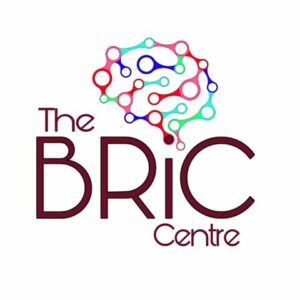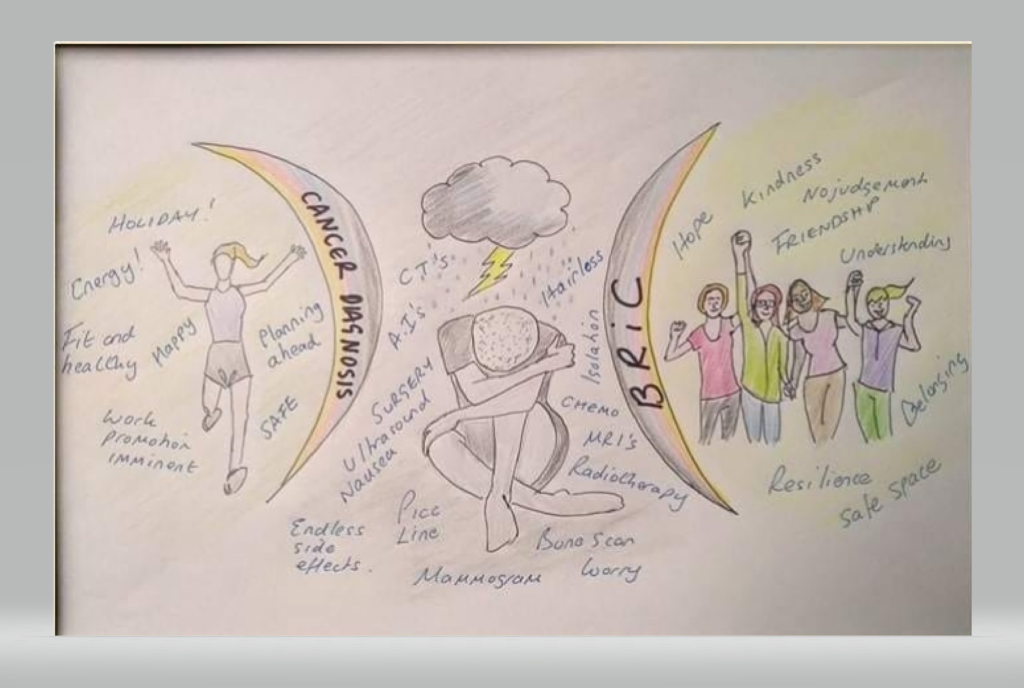The Centre for Building Resilience in Breast Cancer (BRiC) is a unique, award-winning centre for the research and practice of resilience for women in the UK who are diagnosed with breast cancer. It was founded by Professor Nazanin Derakhshan, who specialises in the cognitive neuroscience of anxiety and depression and neurocognitive interventions targeting these symptoms. She founded the centre a few years after her own diagnosis in 2013, when she was in her 30s.

For Breast Cancer Awareness Month, Nazanin explains how BRiC aims to support and educate women with better tools, so that they can take control and ownership of their lives, finding their “new normal” after active treatment, and practicing how to adjust more flexibly to ongoing psychological and physical challenges.
Every 10 minutes in the UK, a woman is diagnosed with breast cancer. Thanks to advancements in medical research more women survive breast cancer than ever before. However, progress in research on how to best support women after diagnosis and treatment has not matched the pace of physical treatments. Research shows that the psychological cost of diagnosis and harsh treatments pose ongoing challenges for many women for many years after active treatment.
Women experience cognitive-related cancer impairments like memory failures and poor concentration affecting their self-esteem, work lives, and confidence. Many experience fatigue, joint pain and sexual dysfunction, as well as high levels of anxiety and depression, which collectively reduce quality of life. In fact, a recent widescale review of the research found that anxiety and depression alone increased risk of mortality in women with a breast cancer diagnosis by up to 30%. There is an urgent need for interventions that empower women with the resilience they need to rebuild their lives and prosper.
Funded through the Wellcome Trust and the Economic and Social Research Council (ESRC), BRiC has pioneered new neuroscientific research into understanding the roots of cognitive and emotional vulnerability brought about by breast cancer diagnosis and treatment, and how these can be targeted and reduced through neurocognitive interventions. These interventions have shown to improve brain flexibility which is a key ingredient for resilience. BRiC’s research shows that the combined effects of social support and better cognitive functioning can protect against depression, and that we can sustainably reduce symptoms of anxiety and depression longer term. We are currently looking at how these interventions can improve work lives and self-esteem which are known to be instrumental for wellbeing.
BRiC hosts a psychoeducational support network of 2,100 UK women with either a primary or secondary diagnosis of breast cancer. It is run by voluntary admin support, who invest much time and effort to make BRiC the award-winning centre that it has become. BRiC’s unique features include its daily structured activities engaging women in exercises which practice resilience and emotion regulation. Its cornerstone is guided live weekly Sunday discussions known as BRiC’s Collective Voice. These focus on the many challenges we face and offer an opportunity to share our emotions and experiences as well as engage in lively debate. These feature as summaries which we publish for the public, increasing awareness.

Every year, as part of Breast Cancer Awareness Month in October we run projects where members showcase their resilience. This year, our project, “I Am More Than My Cancer”, communicates our members’ resiliency through identifying the things they have learned to appreciate in life and boost those inner feelings of joy. These are published daily on our social media channels which can be found below.
If you are a woman living in the UK and have a primary or secondary diagnosis of breast cancer, you can join us. Simply email its founder: n.derakhshan@reading.ac.uk.
You can learn more about what we do by visiting:
- Our website: briccentre.co.uk
- Our blog, Panning for Gold, BRiC’s Collective Voice: https://bcresiliencecentre.blogspot.com/
- Twitter: @ProfNDerakshan or @BC_Resilience
- Facebook: facebook.com/resilienceinbreastcancer
- Instagram @briccentre
Nazanin Derakhshan is a professor of Experimental Psychopathology in the School of Psychology and Clinical Language Sciences at the University of Reading and founder of the BRiC Centre.

